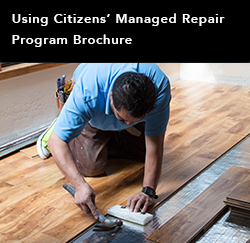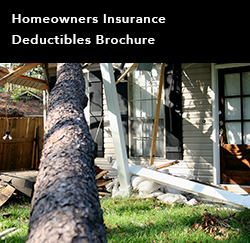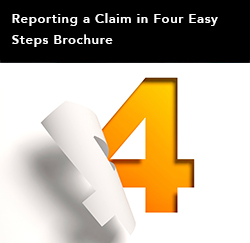
In the wake of a catastrophes like Hurricanes Ian and Nicole, the unscrupulous, money-motivated and dishonest types tend to swarm devastated areas. Unlike lightning, misfortune can strike twice if property owners aren’t wary of scam artists posing as contractors or pretending to represent your insurance company.
While these storms have brought out the best in many people, unethical contractors, repair companies, vendors and others who operate year-round thrive in the frenzy following a storm.
Although many Citizens customers are in need – and seeking help – policyholders must also be on guard for a money grab disguised as a helping hand.
“Our investigators are working to identify unlicensed contractors and other bad actors,” Citizens’ Special Investigations Unit Senior Director Joseph Theobald said. “We don’t want these opportunists to take advantage of our policyholders when they are most vulnerable.”
Don’t Sign Your Rights Away! And Beware of Drone Salesmen
Like all fraud protection advice, these tips not only apply to those affected by catastrophes; they apply to all our customers. Citizens advises policyholders to refrain from signing anything, including an assignment of benefits (AOB) contract, before consulting with their insurance agent.
Policyholders are most likely to be offered an AOB contract while making emergency repairs or when companies knock on their door soliciting business. It’s always a good idea for you to initiate the hiring of a contractor for repairs.
Speaking of someone knocking on your door, anyone representing Citizens should be able to produce valid identification so you know exactly who you are dealing with. To be sure you are interacting with your insurer, or a contracted adjuster sent by Citizens, make sure they know information only Citizens would know, including: your name, policy number, claim number, insured property address and the date you reported your claim.
A new law passed this year that requires adjusters – whether contracted by Citizens or one of our in-house adjusters – to provide customers with their Florida adjusters’ license number. This is also a good way to check if the person you’re talking to is legitimate.
After Ian struck, investigators noticed noncontracted drone vendors telling homeowners they could fly above their property and photograph their damage. Citizens has its own contracted drone services so our adjusters can get specific images needed to adjust claims. It’s free.
Other Activity to Look Out For
Policyholders have a right to retain public adjusters to assist with their claim. While most are reputable, many unlicensed public adjusters flourish after a catastrophe. Under Florida law, a public adjuster may not charge more than 10% of the value of a claim. Consumers also have 10 days to cancel a public adjuster agreement.
If your insured dwelling, detached structure or mobile home is a total loss, Citizens pays the policy value for the structure to you. Hiring a public adjuster who receives 10% of that settlement is not beneficial to the insured, as no adjustment is necessary.
What You Can Do to Protect Yourself
To reduce the chance of fraud, Citizens’ policyholders can file claims online using myPolicy, Citizens’ mobile-friendly, policyholder self-service tool. Representatives are also available 24/7 to handle claims calls at 866.411.2742. More information can be found in the Claims section of the Citizens website or by reading the Insurance Fraud Is A Serious Crime brochure on the site.
To report suspected insurance fraud, Citizens’ policyholders can call Citizens’ Special Investigations Unit toll-free at 855.748.8596 or submit a report online.
Customers can also contact the Department of Financial Services, Division of Consumer Services’ Insurance Consumer Helpline immediately at 877.693.5236.
Social media is a popular method for customers to request help. Citizens has verified accounts across many platforms. We've done this to help provide assurance that when you are contacted by us, you know it is legitimate.







